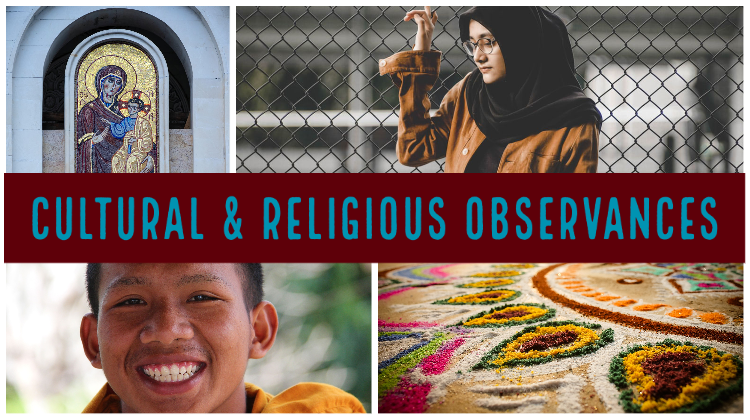Holy Thursday
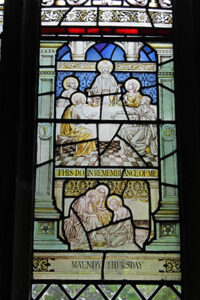
Culture/religion: Christianity
Date: April 14
Holy Thursday is the Thursday before Easter and commemorates the Last Supper of Jesus Christ, when he established the sacrament of Holy Communion prior to his arrest and crucifixion, as well as his institution of the priesthood. Jesus celebrated the dinner as a Passover feast. The Last Supper was the final meal Jesus shared with his Disciples in Jerusalem, during which time he predicted his betrayal.
Alternate names: Maundy Thursday
Sources:
Holy Thursday/The Last Supper, Catholic Online
Good Friday
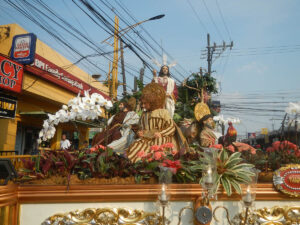
Culture/religion: Christianity
Date: April 15
Good Friday is a Christian holiday commemorating the crucifixion of Jesus. It is observed during Holy Week on the Friday before Easter.
It has been questioned as to why such a sad day would be called “Good” Friday? It is answered by the explanation that Jesus died on the cross as the ultimate act to forgive humanity of its sins and open the gates of heaven; Jesus showed His great love for man and purchased for him every blessing.
The source for the term “Good Friday” has been a debate for some time. One thought is that it comes from an interpretation of “God’s Friday.”
Sources:
Good Friday, Wikipedia
The Meaning of Good Friday Explained: Everything You Need to Know About the Holy Day in 2020, Newsweek
Theravada New Year

Culture/religion: Buddhist
Date: April 16
Theravada New Year is a Buddhist festival celebrated by followers of the Theravada religion. The celebration takes place on the first full moon day in April, marking the end of one luni-solar calendar year and the beginning of the next.
Celebrations and traditions vary by region, but many use rituals involving water and sand. Each grain of sand represents a wrongdoing, and when the sand is washed away, the bad karma is washed away as well.
Sand hills are built to symbolize Mount Meru, the mountain at the center of the cosmos and home of the gods; Buddha statues are distributed to monks; and in some regions, people pour water on each other and Buddha statues.
Sources:
Theravada New Year, Feast-Guide.com
Happy Theravada New Year, Wijsheidsweb.nl
Why do only some Buddhists celebrate Theravada New Year?, Beliefnet.com
Hanuman Jayanti
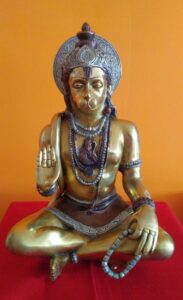
Culture/religion: Hindu
Date: April 16
Hanuman Jayanti is a very special festival in India celebrating the birth of Lord Hanuman. Hanuman is widely known and worshiped for his unflinching devotion to Lord Rama.
Devotees visit Hanuman temples to worship Hanuman and get his blessings. People also celebrate by chanting various devotional hymns and prayers and reading holy scriptures.
Sources:
When is hanuman Jayanti 2020? Date, History, Significance and all you need to know, Times of India
Hanuman Jayanti, Times of India
Passover
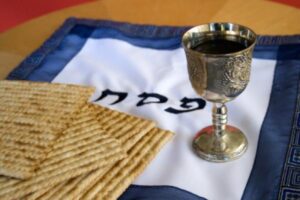
Culture/religion: Judaism
Date: April 16-23
Passover is an eight-day festival celebrated in early spring, from the 15th through the 22nd of the Hebrew month of Nissan. The celebration commemorates the emancipation of the Israelites from slavery in ancient Egypt.
In Hebrew, it is known as Pesach (“to pass over”) because God passed over the Jewish homes when killing the Egyptian firstborn on the very first Passover eve.
Passover occurs in two parts – the first two days and last two days which are full-fledged holidays. Holiday candles are lit at night, and holiday meals are enjoyed on both nights and days. On these days, it is not permitted to work, drive, write or use electric devices. The middle four days, called Chol Hamoed, are semi-festive “intermediate days” when most forms of work are permitted.
Passover begins at sundown on April 15. Work is not permitted April 16-17 and April 22-23. Work is permitted April 18-21 will certain restrictions.
Alternate names: Pesach (PEH-sahkh, PAY-sahkh)
Sources:
What is Passover (Pesach)?, Chabad.org
Glossary of Jewish Terminology, Judaism 101, jewfaq.org
Easter Sunday
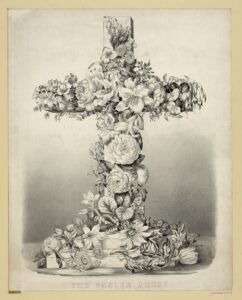
Culture/religion: Christianity
Date: April 17
Easter Sunday is celebrated by Christians to recognize the resurrection of Jesus Christ from the dead after his crucifixion and burial.
Easter culminates the penitential period that starts with Ash Wednesday. Palm Sunday, which marks the entrance of Jesus into Jerusalem, occurs one week before Easter. Easter is a joyous holiday, since it marks for Christians the fulfillment of the Biblical prophecy of the coming of the Messiah. In addition to its religious significance, Easter is also celebrated as a spring holiday with themes of rebirth, gathering together with family and friends, and sharing special foods.
Sources:
What Easter Means to Christians, LearnReligions.com
Easter, Wikipedia

